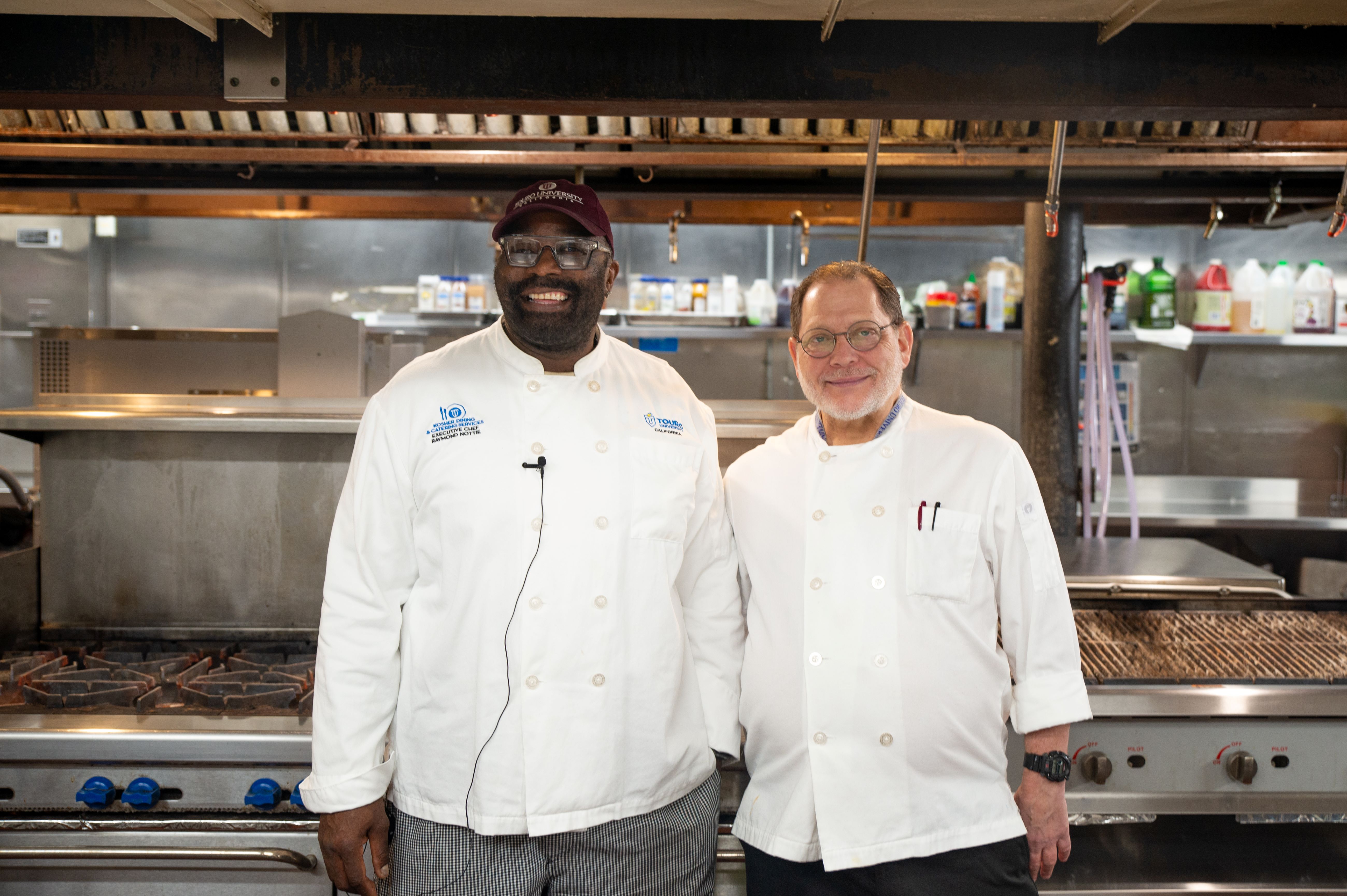Chef Ray's Culinary Journey
Ray Nottie's mastery of kosher cooking reflects his culinary skills and experience, incorporating lessons from diverse culinary backgrounds.

Executive Chef Raymond Nottie's journey into the culinary world begins in Mississippi, where family gatherings and traditional cooking laid the foundation for his passion for food.
His mother's southern cooking, the centerpiece of many family gatherings, served as the catalyst for his career.
“What made me really understand and love cooking was when I would see how my mom made all these dishes,” says Nottie, who would hide under the kitchen table to learn her techniques. “My mom was known as the Christmas Lady, and she would make fried chicken, sweet potato pie, and potato salad.”
Nottie's professional journey began at Soul Brothers Kitchen in Oakland, where he started as a dishwasher. The experience of watching skilled chefs prepare soul food staples like fried chicken, chitlins, and peach cobbler further fueled his desire to become a chef. He got his break at Lions Restaurant in Emeryville, then went through kitchens at the Hotel Durant, Paula LeDuc Fine Catering, Saint Mary's College, and Wente Vineyard, each experience broadening his culinary expertise. Corporate stints at Hewlett-Packard, PeopleSoft, Google, and Facebook provided exposure to different styles of cooking and culinary management. The rapid progression from one corporate cafeteria to another built his culinary prowess and adaptability.
Arriving at Touro University California (TUC) in 2013 introduced a new challenge for Nottie – cooking kosher food. By working closely with the mashgiach, a rabbi that ensures the adherence to Jewish dietary laws and traditions, Nottie was able to incorporate his vast culinary knowledge into kosher cooking.
“When I came here, I had experience in different culinary worlds like corporate, restaurants, and catering,” says Nottie. “Cooking kosher food involved creating a partnership with the mashgiach. They have to check and wash all the produce, receive all the orders, and certify all the food I make is kosher.”
Making kosher food requires a deep understanding of Jewish dietary laws and traditions, which include the following requirements:
- Separation of Meat and Dairy: Kosher kitchens strictly separate meat and dairy products to adhere to the kosher dietary laws. Utensils, cookware, and even preparation areas are designated for either meat or dairy. The kitchen at TUC has a separate area for dairy, which is most often served at breakfast.
- Supervision by a Mashgiach: A mashgiach, or kosher supervisor, ensures that all food preparation aligns with kosher guidelines. Chef Ray collaborates with a mashgiach at TUC to maintain the highest kosher standards.
- Use of Kosher Ingredients: All ingredients must be certified kosher, meaning they meet the specific requirements outlined in Jewish dietary laws. This includes meat from kosher animals and products free from certain additives. Blood is not allowed to be consumed.
- Inspection of Fruits and Vegetables: Fruits and vegetables require careful inspection to ensure they are free from insects, as consuming insects is not allowed in kosher dietary laws.
To make it all work, the kitchen is divided into sections with separate refrigeration, cooking, and equipment. The dairy kitchen is isolated in a far corner away from everything else. A produce washing station is where the mashgiach makes sure that no insects from vegetables or fruits make it into any dish. Baking and desserts have their own portion of the kitchen and are considered a neutral workspace, and the area where meat is prepared is partitioned to keep dairy products out. Equipment is marked as blue for dairy, red for meat, and green for baking to keep all equipment from cross contaminating.
“When I came here 11 years ago, I didn’t know what it meant to cook kosher, but I learned, and I am still here,” says Nottie. “It’s not limitation because I combine everything I know about cooking and make good food that is also kosher.”
For Nottie, the passion of cooking keeps him excited to be challenged with different ideas and situations, including bringing a daily changing menu that satisfies a wide range of dietary needs. Like his mother before him, Nottie is now running his own kitchen feeding nutritious food to his extended Touro family.
